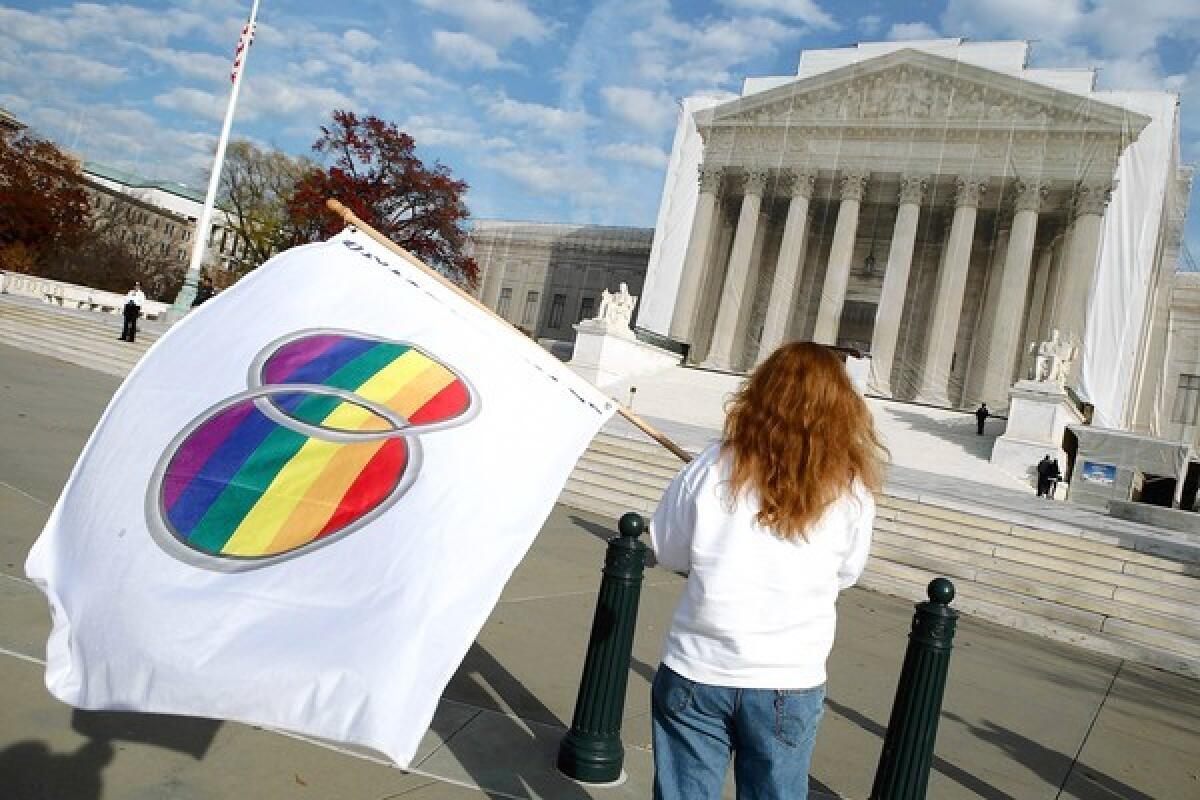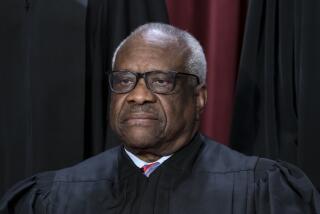Letters to the Editor: What right do Christian justices have to take away marriage from gay people?

- Share via
To the editor: For a Supreme Court justice — or six of them — to deny marriage to same-sex couples because their own religion does not sanction it, as Erwin Chemerinsky warns may soon happen, is anti-democratic.
People have the right to decide about their marriage and their child-raising without a judge’s interference — just as an evangelical Christian who happens to be vice president should not have the right to determine if a woman of another belief can terminate her pregnancy.
There is a gay couple in my own family. One gentleman is a rabbi, and the other has been a cancer nurse for children and an intensive care nurse for adults. Both are totally dedicated to their work and to the people they help. Who are Justices Samuel A. Alito Jr. and Clarence Thomas to say they may not marry and share a home?
A 6-3 Supreme Court with Amy Coney Barrett replacing Ruth Bader Ginsburg will take us back to the time when we disregarded the rights of those who are “different.”
Lynne Shapiro, Marina del Rey
..
To the editor: Why can’t counties just stop issuing “marriage licenses” and start recording only “domestic partnership agreements” instead? It would allow people to spell out their legal and financial relationship without all the religious and social baggage that comes from the word “marriage.”
Many people could obviously still have weddings and become “married” in the eyes of whatever church or community they are part of, but the county would not need to look over their shoulders.
Reynold Blight, Los Angeles
..
To the editor: I have not taught constitutional law like Chemerinsky. However, I am an attorney, a Black man and gay.
The news media have described the judge offered by the White House to fill the late Justice Ginsburg’s vacancy as someone who was picked because she is likely to place her religious beliefs into the U.S. Constitution, notwithstanding the separation of church and state.
How can minorities be protected from the tyranny of the majority if the Constitution is so pliable that fundamental rights are easily changed based on the religious beliefs of the justice reading the Constitution?
Thomas DeBoe, Los Angeles
More to Read
A cure for the common opinion
Get thought-provoking perspectives with our weekly newsletter.
You may occasionally receive promotional content from the Los Angeles Times.









